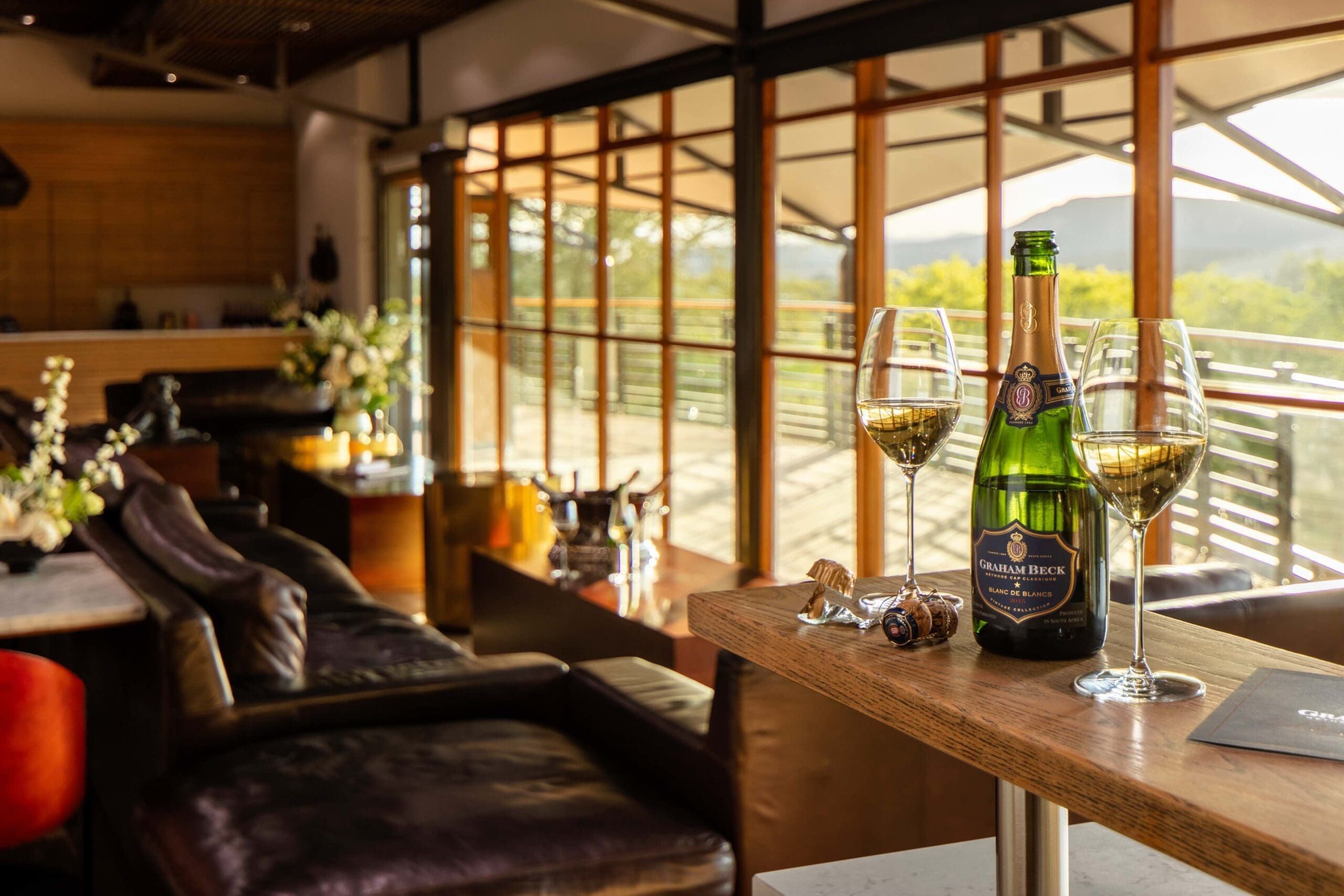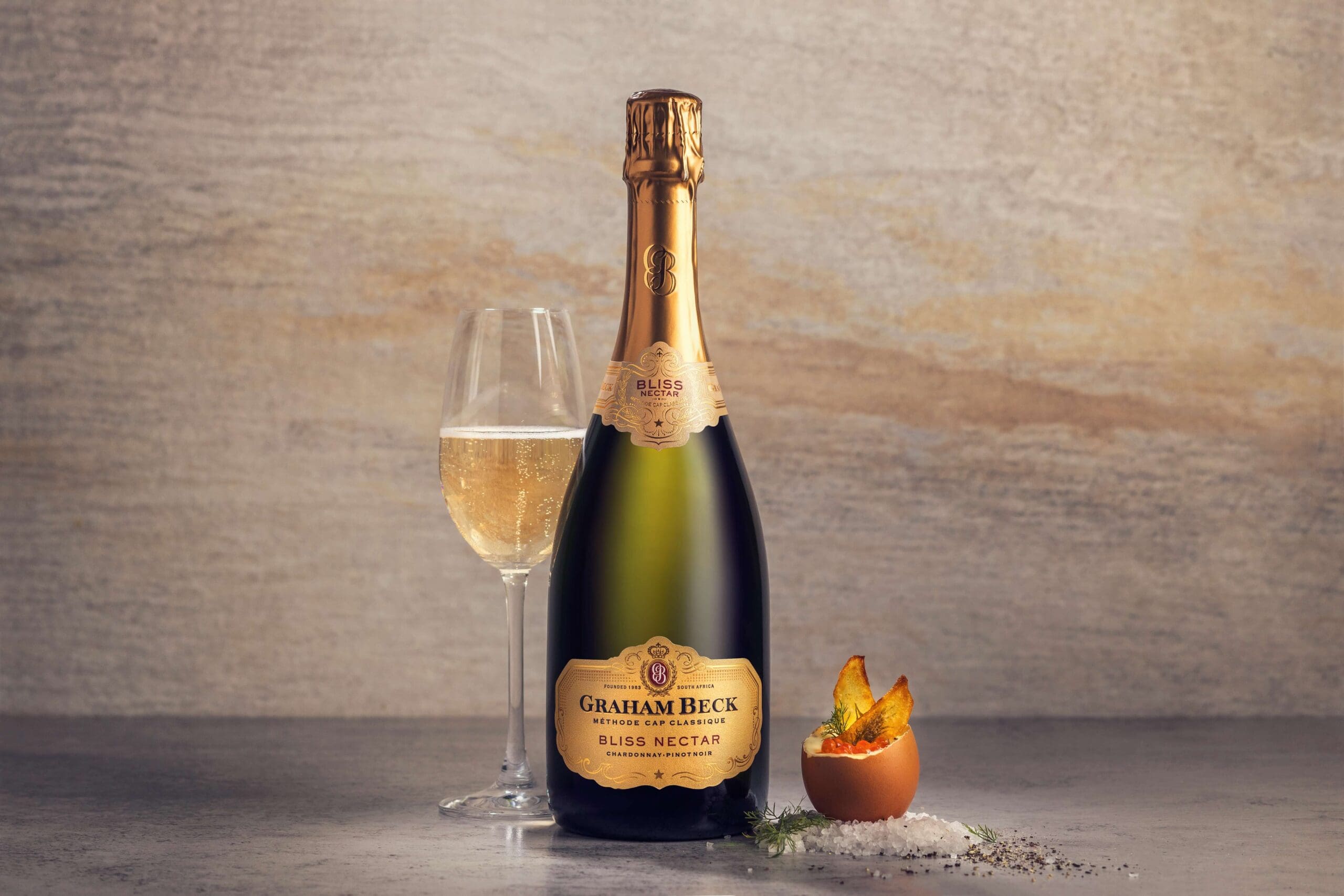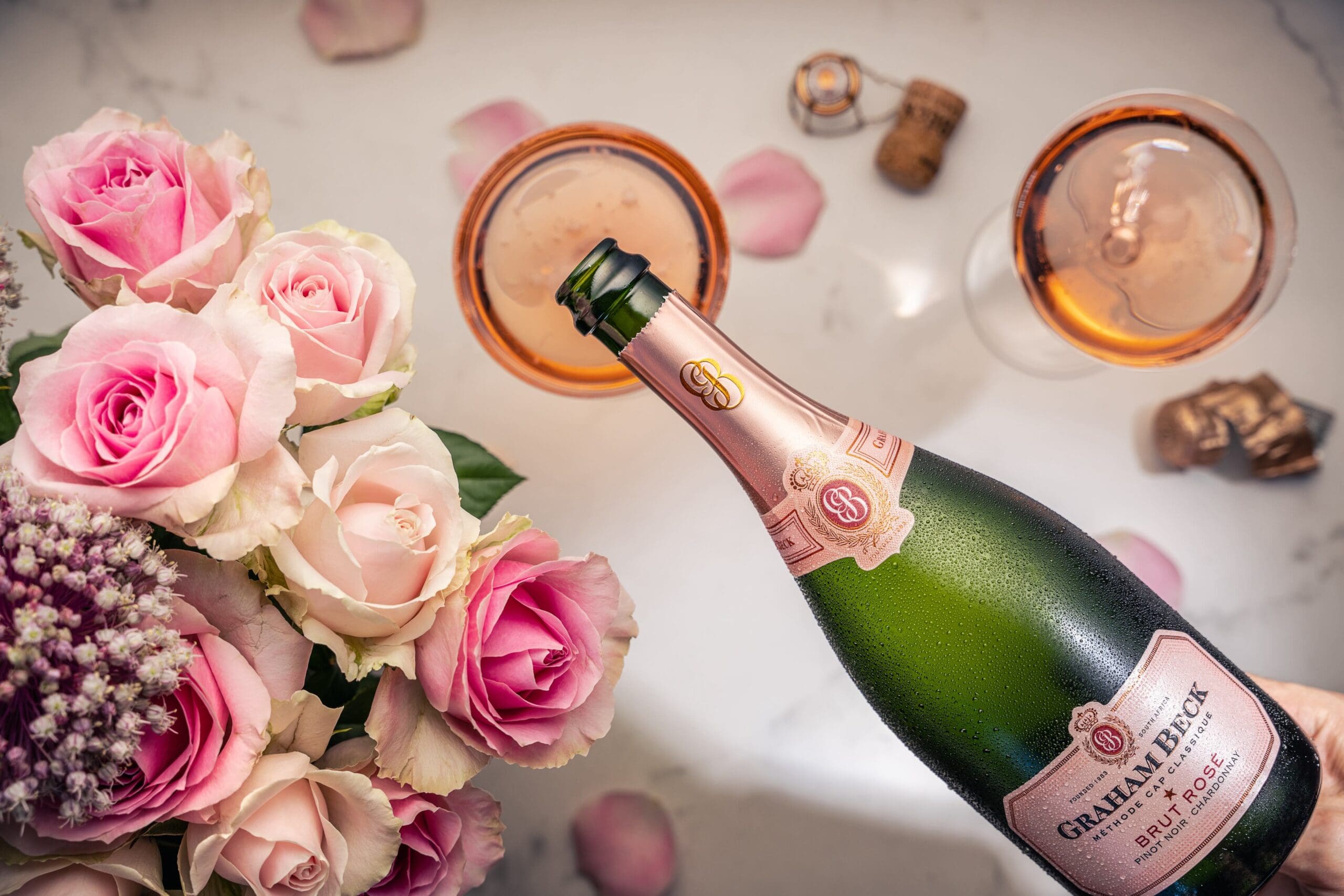GRAHAM BECK is celebrating its 40th anniversary as a sparkling wine producer. Founded in 1983, the House has been firmly established as a leading producer of Cap Classique, South Africa’s premium Champagne method sparkling wine. It has led the burgeoning industry in quality and sustainability since its inception.
 Over the past four decades, Graham Beck has continued to establish a key position in the global market, garnering recognition as the leading producer of Cap Classique locally and in the United Kingdom and the United States. Today, Graham Beck is available in more than 40 countries, with Cap Classique becoming a comparable alternative to Champagne and offering a solid competitive price point to the likes of Prosecco, Cava, and Sekt.
Over the past four decades, Graham Beck has continued to establish a key position in the global market, garnering recognition as the leading producer of Cap Classique locally and in the United Kingdom and the United States. Today, Graham Beck is available in more than 40 countries, with Cap Classique becoming a comparable alternative to Champagne and offering a solid competitive price point to the likes of Prosecco, Cava, and Sekt.
The House’s consistent passion and dedication to mastery have resulted in various awards and accolades over the years. Graham Beck NV Brut was chosen as the celebratory beverage at the election of the first democratically elected president of South Africa, Nelson Mandela, and the sparkling wine that was poured for Barack Obama’s acceptance speech in 2008. The 2009 Blanc de Blancs won the trophy for best sparkling wine in the world at the International Wine & Spirit Competition.
 So, does the “perfect bubble” truly exist? Whether you deem it a tangible goal or a mere pipedream, at the House of Graham Beck, it forms the core of the brand’s philosophy. This phrase captures its journey towards achieving the most refined and consistent effervescence, embodies the dedication, the attention to detail, and the commitment to quality maintained.
So, does the “perfect bubble” truly exist? Whether you deem it a tangible goal or a mere pipedream, at the House of Graham Beck, it forms the core of the brand’s philosophy. This phrase captures its journey towards achieving the most refined and consistent effervescence, embodies the dedication, the attention to detail, and the commitment to quality maintained.
In addition to being a leader in Cap Classique production, Graham Beck is a leader in conservation, and was the second winery in South Africa to be awarded Conservation Champion Status from the World Wildlife Fund (WWF) in 2004. Graham Beck partnered with neighbouring farms to found Rooiberg Breede River Conservancy in 2006, preserving nearly 16,000 hectares in the Cape Floral Kingdom, a globally recognized biodiversity hotspot. Today, for every hectare planted to agriculture or vineyard, 8.25 hectares of natural vegetation are conserved.
 For more information, click here.
For more information, click here.
